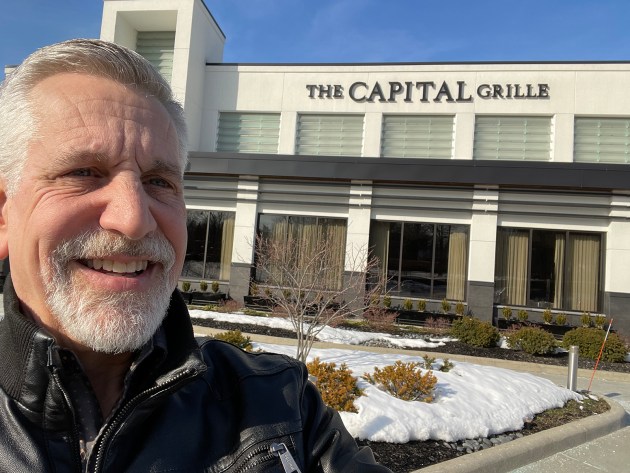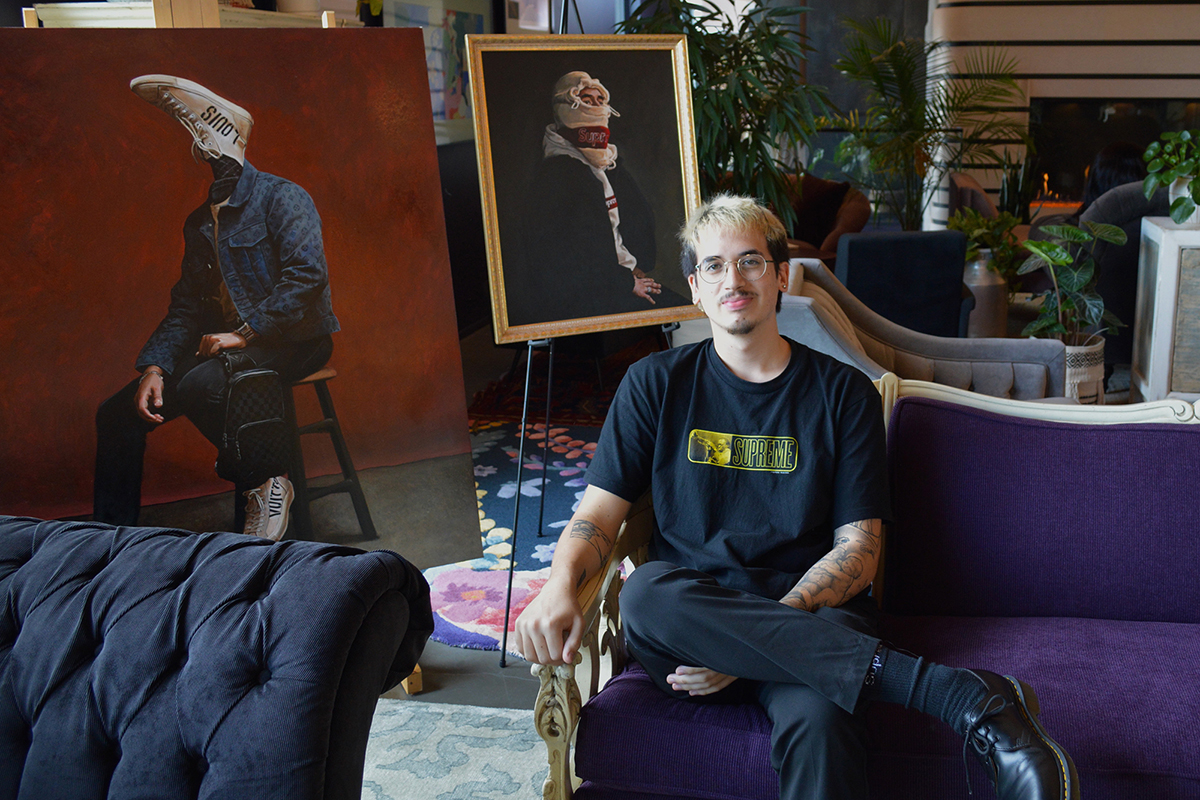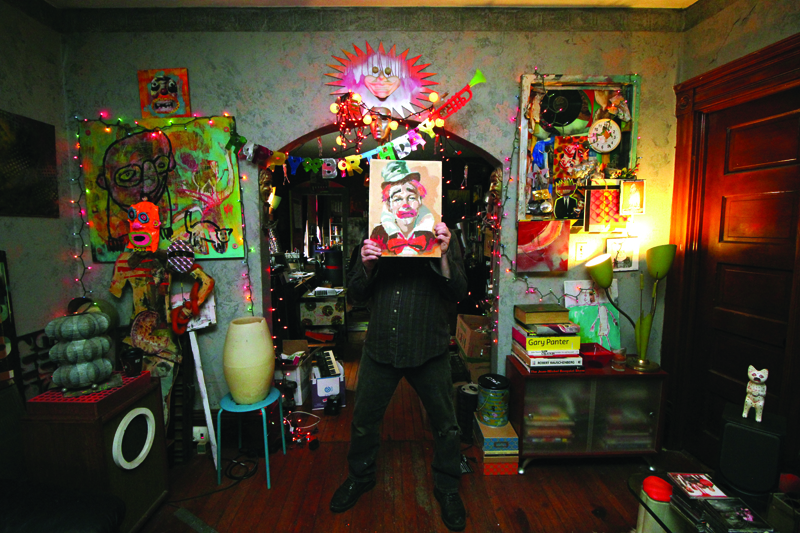Marc Moritz, improv artist/restaurant host
By Bob Abelman
A priest, a rabbi and a minister walk into a bar.
If that bar happened to be inside the Capital Grille steakhouse in Lyndhurst, chances are good that an array of perfectly timed punchlines – some more blasphemous and bluer than others – would be coming from funnyman and improv artist-turned-restaurant host Marc Moritz as he sat them at a table.
In the late 1980s, Moritz was the founder/director of the Cleveland-based Giant Portions Improv Troupe, after having done stints at central Chicago’s famous ImprovOlympic. He has since taught acting and improv at the American Musical and Dramatic Academy and CAP21, among other professional training programs. And he has performed on stages throughout Cleveland – most recently in Karamu House’s production of “Ma Rainey’s Black Bottom” – and across the United States, including the former Alvin Theatre in the original New York City Broadway production of the Stephen Sondheim/Hal Prince musical “Merrily We Roll Along.”

That is, until the pandemic forced the closure of clubs and other entertainment venues. Hence the gig at the Capital Grille, which was a challenging albeit short-lived professional pivot for Moritz. More like a pirouette.
“It’s a great restaurant and a wonderful place to work. For anyone but me,” he says.
Moritz quickly came to realize his tendency to find the funny in everything was not particularly conducive to the serious job of greeting and seating customers at a high-end establishment and guaranteeing them a delightful dining experience.
“I think they hired me for my outgoing personality and improvisational instincts, which included being able to read a room,” he says. “But every night there would be a situation – a cantankerous diner or some minor mishap in the kitchen or on the floor – that called for a mature and professional response. For me, each was a ‘yes, and’ improv opportunity waiting to happen or in desperate need of a truly great one-liner, which I had in abundance.”
To keep his comedy chops in check, Moritz took his breaks in an empty restaurant restroom and, while looking in the mirror, gave himself a dialect (say, Brooklynese) and a complication (you are presenting the evening’s entree specials to a table of business executives but cannot use the letter “m”) and did some mental short-form scene work to get it out of his system. He would suggest to himself three simultaneous psychoses (an intolerance of people chewing food, not being able to touch things made of paper, an inability to stand up for more than a few seconds at a time) and play them out in his head before returning to his post, purged and with a straight face.

“A sense of humor wasn’t a requirement for the job,” says Moritz, “but it sure served as a survival strategy on the job,” which lasted all of three months.
And what would have happened if a priest, a rabbi and a minister actually walked into the bar? “I wouldn’t have made it to two months.”
Since leaving Capital Grille, Moritz has performed improv for the Cleveland Clinic and University Hospitals, portraying injured and sick patients to help train their medical staffs.










